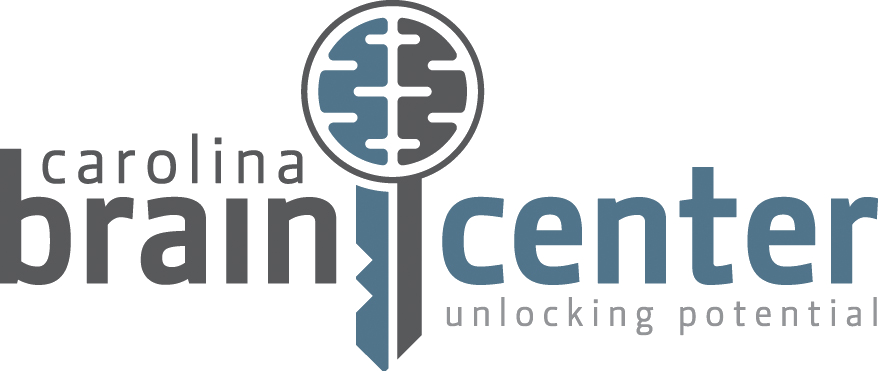As we navigate the complexities of aging, maintaining cognitive health becomes a paramount concern. I’m Dr. Dane, a Chiropractic Neurologist at Carolina Brain Center, and I’ve dedicated a significant part of my practice to understanding how lifestyle factors, especially nutrition, play a critical role in preserving our cognitive abilities into our later years. In this article, we’ll take a closer look at the nutritional strategies that can bolster your brain health, outlining what specific nutrients do for your body, how often you should consume them, and in what amounts. Additionally, I’ll share insights into how regular appointments with a Chiropractic Neurologist, including nutrition consultations, can further support your cognitive well-being.
The Importance of Nutrition for Cognitive Health
Our brain is an energy-intensive organ, requiring various nutrients to function optimally. The right nutrition can support brain structure, enhance cognitive functions, and protect against age-related decline. Certain nutrients, often referred to as “brain foods,” have been shown to have a profound impact on maintaining cognitive health. Let’s explore these critical nutrients and their benefits.
Omega-3 Fatty Acids
Omega-3 fatty acids are essential fats that play a vital role in brain health. They are crucial for building brain and nerve cells, essential for learning and memory. Omega-3s also have anti-inflammatory effects that may protect against brain aging and cognitive decline.
– Sources: Fatty fish like salmon and sardines are excellent sources of omega-3s. Vegetarian options include walnuts, flaxseeds, and chia seeds.
– Recommended Intake: For adults, eating fish twice a week is recommended. For vegetarians or those who don’t consume fish, supplements or fortified foods can help meet their omega-3 needs.
Antioxidants (Vitamins C and E, Beta-Carotene)
Antioxidants play a protective role for the brain by neutralizing harmful free radicals. This action helps reduce oxidative stress, a factor that contributes to brain aging and neurodegenerative diseases.
– Sources: Berries, nuts, seeds, and dark, leafy greens are rich in antioxidants. Citrus fruits and carrots also provide these essential nutrients.
– Recommended Intake: Incorporate a variety of fruits and vegetables into your daily diet to ensure adequate intake of these antioxidants. Aim for at least five servings of fruits and vegetables per day.
B Vitamins (B6, B12, Folate)
B vitamins, particularly B6, B12, and folate, are crucial for brain health. They help reduce the level of homocysteine in the blood, high levels of which are associated with an increased risk of dementia and Alzheimer’s disease.
– Sources: Leafy greens, fruits, legumes, and meats are good sources of B6 and folate. B12 is primarily found in animal products, including fish, meat, poultry, eggs, and dairy.
– Recommended Intake: It’s important to get these vitamins from your diet or supplements, especially for those with dietary restrictions. The recommended daily intake varies by age and dietary habits, but incorporating a variety of these foods can help meet your needs.
Vitamin D
Vitamin D, often known as the “sunshine vitamin,” has a significant role in brain health. It’s involved in many brain processes, and low levels of vitamin D have been linked to a higher risk of cognitive decline and dementia.
– Sources: While sunlight is the primary source, vitamin D can also be found in fatty fish, egg yolks, and fortified foods. Supplements can be beneficial, especially in areas with limited sunlight.
– Recommended Intake: The recommended daily allowance for adults is 600-800 IU, but some experts suggest higher doses may be necessary for optimal health. It’s important to check your vitamin D levels and consult with a healthcare provider before starting supplements.

Minerals (Magnesium, Zinc)
Magnesium and zinc are minerals essential for brain health, playing roles in nerve function and cognitive processes.
– Magnesium: Supports neurotransmitter function, which is crucial for cognitive activities.
– Sources: Green leafy vegetables, nuts, seeds, and whole grains.
– Recommended Intake: 400-420 mg per day for men and 310-320 mg per day for women.
– Zinc: Important for nerve function and can influence memory and learning.
– Sources: Meat, shellfish, legumes, seeds, and nuts.
– Recommended Intake: 11 mg per day for men and 8 mg per day for women.
Hydration
Hydration is crucial for maintaining cognitive function. Even mild dehydration can affect concentration, memory, and mood. Aim to drink at least eight 8-ounce glasses of water daily, adjusting based on activity level and climate.
Nutritional Strategies for Cognitive Health
Incorporating the aforementioned nutrients into your diet is a vital strategy for cognitive health. Emphasize a balanced diet rich in fruits, vegetables, whole grains, lean proteins, and healthy fats. The Mediterranean diet, for example, is heralded for its brain-protective benefits, emphasizing plant-based foods, fish, and olive oil.
The Benefits of Regular Appointments with a Chiropractic Neurologist
As a Chiropractic Neurologist, I offer a unique perspective on holistic health care, emphasizing the connection between the nervous system and overall wellness. Regular appointments allow us to:
– Assess Cognitive Health: Through comprehensive evaluations, we can identify potential issues early and implement strategies to mitigate them.
– Personalized Nutrition Plans: Based on your health status and goals, I can provide tailored nutrition advice to support your cognitive health.
– Adjust Treatments as Needed: Ongoing care means treatments can be refined over time, ensuring they remain effective for your changing health needs.
Nutrition Consultation in Chiropractic Neurology Practice
During a nutrition consultation, we review your dietary habits, identify deficiencies, and create a personalized nutrition plan focused on enhancing cognitive function. This holistic approach not only addresses nutritional needs but also considers lifestyle factors contributing to your overall health.
Conclusion
As we age, nutrition plays a foundational role in preserving cognitive health. By focusing on a diet rich in essential nutrients and staying hydrated, we can support our brain health and reduce the risk of cognitive decline. Moreover, partnering with a Chiropractic Neurologist offers a comprehensive approach to wellness, ensuring that your nutrition and lifestyle align with your cognitive health goals.
At Carolina Brain Center, we’re committed to helping you achieve optimal cognitive health through personalized care and expert guidance. If you’re ready to take a proactive approach to your cognitive wellness, I invite you to schedule a consultation with us. Together, we can develop a plan that supports your brain health and overall well-being for years to come.

